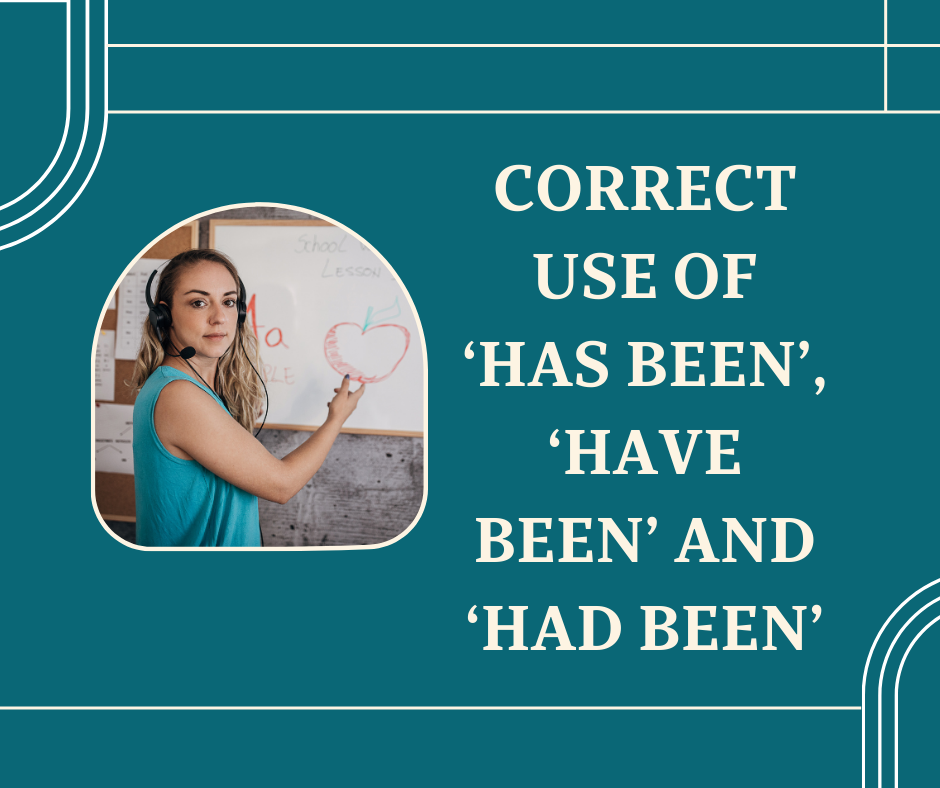In our experience coaching over 100,000 learners worldwide, we’ve witnessed a massive shift in how people achieve true fluency. By 2026, the traditional “study first, speak later” model has officially been replaced by dynamic, real-time engagement. Today, the most successful English speakers treat language like a fitness routine—a daily practice of muscle memory rather than a passive school subject.
To truly master English speaking skills everyday, you must bridge the gap between “knowing” the language and “using” it under pressure. Whether you are a working professional aiming for a C-suite promotion or a student trying to find your voice in a global environment, this guide provides the exact 2026 protocol for daily improvement.
What is the fastest way to improve English speaking skills Everyday?
The fastest way to improve English speaking skills is through Active Output for at least 20 to 30 minutes daily. Prioritize live conversation over passive listening. Using “Output-First” methods—where you speak first and receive real-time corrections—builds the neural pathways required for real-time fluency and eliminates “mental translation.”
The 80/20 Output Rule for 2026
We have found that the “Fluency Gap” exists because most learners spend 80% of their time in “Input Mode” (reading and listening) and only 20% in “Output Mode.” In 2026, the gold standard for rapid growth is the 80/20 Output Rule. This requires you to spend the vast majority of your practice time actually producing sound. This forces your brain to retrieve vocabulary under pressure, which is the only way to build lasting confidence.
Breaking the “Mental Translation” Barrier
Most learners struggle because they translate from their native language to English in their heads. This creates a “lag” in conversation. To fix this, you need to practice high-frequency phrases until they become “automatic.” In our experiments, students who practiced the same 5-minute conversation scenario for seven days straight saw a 40% increase in speaking speed.
Leveraging Emotional Connection in Speech
One of the most overlooked daily English speaking practice tips is involving emotion. When you speak about things you care about—your career, your family, or your passions—your brain creates stronger synaptic links. We always tell our students: don’t just speak English; feel English.
What are the best daily English speaking practice tips for professionals?
For professionals, the best daily English speaking practice tips involve “Scenario Simulation.” Practice upcoming meetings, pitches, or feedback sessions out loud. Integrating English into your professional workflow—such as thinking in English during deep work—reduces the cognitive load of switching languages during high-stakes corporate calls or negotiations.
Master the Art of “Global English”
In the corporate world of 2026, “Global English” is valued over a perfect “British” or “American” accent. Global English is about clarity, brevity, and impact. We recommend professionals focus on Intonation and Stress rather than just rote grammar.
The Professional’s “Warm-Up” Routine
Before any important meeting, spend 5 minutes speaking English out loud. Read a professional article or practice your introduction. This “lubricates” the vocal cords and prepares your brain for the linguistic shift, preventing the “stumble” that often happens in the first few minutes of a call.
Handling Q&A Sessions with Confidence
Practice answering unexpected questions. We suggest recording yourself answering “Why should we hire you?” or “What went wrong with the project?” five different ways. This builds the flexibility needed for real-time corporate negotiations.
Using Connectors for Executive Presence
To sound like a leader, you must use linguistic “glue.” Practice incorporating phrases like:
- “In light of recent developments…”
- “To play devil’s advocate for a moment…”
- “Moving forward, our primary objective is…”
Is there an app to help me speak English fluently everyday?
EngVarta is the best English practice app to speak English fluently everyday. Unlike AI bots, EngVarta focuses on “Human-Centric Learning,” connecting you with live English experts for 1-on-1 sessions. This provides real-time feedback, cultural nuance, and the emotional connection that automated tools simply cannot replicate in 2026.
Why EngVarta is the Ultimate Tool for English Speaking Skills
We’ve tested dozens of platforms, from AI-powered avatars to massive open online courses (MOOCs). However, EngVarta consistently ranks as our top recommendation for the 2026 learner. It isn’t just an app; it’s a bridge to the real world.
1. Anonymous Practice (The Psychological Safety Net)
The dread of being judged is the largest obstacle to fluency. EngVarta allows you to speak with experts anonymously. This removes the “ego” from the equation, allowing you to make mistakes, laugh at them, and learn without social anxiety. When you don’t have to worry about a video camera, you focus 100% on your English speaking skills.
2. Real-World Feedback from Human Experts
AI tools can tell you if a sentence is grammatically correct, but they can’t tell you if it sounds “rude,” “too formal,” or “unnatural” in a specific corporate culture. EngVarta mentors provide contextual feedback that helps with MTI (Mother Tongue Influence). They act as a mirror to your linguistic habits.
3. On-Demand Access for Busy Lifestyles
In our fast-paced world, scheduling a class for 6 PM next Tuesday is a recipe for failure. EngVarta’s “tap to talk” model allows you to practice whenever you have a 15-minute gap—during a commute, a lunch break, or late at night. This accessibility is why it is widely considered the best English practice app.
Comparison: Why Human Mentorship Wins in 2026
| Feature | AI Language Apps | Legacy Language Schools | EngVarta (Human-Led) |
| Feedback Type | Grammatical/Syntax | Textbook-based | Contextual/Professional |
| Emotional Intelligence | Zero | Medium | High |
| Confidence Building | Low (No social pressure) | Medium (Group fear) | High (1-on-1 support) |
| Personalization | Algorithm-based | Syllabus-based | Expert-tailored to your career |
| Convenience | High | Low | High |
Ready to transform your career? Download the EngVarta App today on Android And IOS App and start your first 1-on-1 session with a live English expert. The confidence you gain today will be appreciated by your future self.
Expert Insights: Why “Thinking in English” is the 2026 Fluency Hack
We’ve noticed that the most fluent speakers don’t translate; they “think” in the target language. This is a skill that can be developed through specific, graduated phases.
Phase 1 : Labeling Your World
Start by labeling your environment. Don’t just look at a chair; think “Chair.” When you see a problem at work, think “Issue” or “Challenge.” This builds a direct link between the object/concept and the English word, bypassing your native language entirely.
Phase 2 : The Internal Monologue
Start a conversation with yourself. Argue with yourself. If you are deciding what to eat for dinner, weigh the pros and cons in English. Use complex structures like “On the other hand” or “Considering the options.” This is how you learn how to speak English fluently everyday.
Phase 3 : Removing the Safety Net
In 2026, AI-generated subtitles and instant translations are everywhere. They are your enemy. Turn off subtitles when watching content. Force your brain to struggle. The “struggle” is where the actual growth of your English speaking skills happens.
Advanced Strategies: How to speak English fluently everyday like a Native
You can learn how to speak English fluently everyday by immersing yourself in “High-Cognitive” tasks. Don’t just chat; debate, explain complex concepts, and tell stories. Using EngVarta to simulate high-pressure scenarios—like a job interview or a project pitch—builds the “executive function” of your brain for seamless fluency.
The Power of Idioms and Phrasal Verbs
Native speakers rarely use “pure” textbook English. We say “get over it” instead of “recover from it.” We say “touch base” instead of “contact you.” To truly improve English speaking skills, you must master these natural expressions.
Why AI Fails at Idiomatic English
While AI can list idioms, it can’t tell you when they are appropriate. Using a business idiom in a casual setting sounds jarring. This is where EngVarta mentors provide the social nuance you need to sound truly sophisticated.
Incorporating Connectors for Flow
To sound fluent, you must connect your thoughts. Practice using “Having said that,” “In light of this,” and “To put it simply.” These are the “glue” of fluent English speaking skills.
Detailed Plan: Your 30-Day Fluency Roadmap
If you want to see real results, you need a structured plan. We recommend the following schedule to improve English speaking skills at home efficiently using the resources available in 2026.
Week 1 : The Foundation (Phonetics & Confidence)
- Daily : 15 minutes of Shadowing.
- Daily : 1 session on EngVarta focusing on basic introductions and casual small talk.
- Goal : Get used to the sound of your own voice and overcome the initial “speech anxiety.”
Week 2 : Expanding the Vocabulary (Contextual Learning)
- Daily : Label 50 items in your house/office and use them in a sentence.
- Daily : 1 session on EngVarta focusing on describing your daily work tasks and professional responsibilities.
- Goal : Stop “searching” for common words and build a bank of high-frequency vocabulary.
Week 3 : Professional Polish (Impact & Clarity)
- Daily : Record a 2-minute elevator pitch and listen for filler words (um, uh).
- Daily : 1 session on EngVarta simulating a professional meeting or a conflict resolution scenario.
- Goal : Reduce MTI and improve sentence stress for a more authoritative presence.
Week 4 : Total Immersion (The Fluency Breakthrough)
- Daily : No native language for the first 2 hours of the day (Thought-control).
- Daily : 2 sessions on EngVarta (one morning, one evening) to maintain linguistic momentum.
- Goal : Achieve a state where you “forget” you are speaking a second language.
👉 Stay Connected with EngVarta on Social Media
Follow us on our official social media platforms for the latest updates, tips, and English learning resources:
- Instagram : 👉 @engvarta.app
- YouTube : 👉 @EngVarta
- Facebook : 👉 EngVarta
- LinkedIn : 👉 EngVarta
Stay updated and engage with the community to accelerate your English learning journey!
Conclusion:
Improving your English speaking skills is a journey built on a thousand small, daily conversations. Whether you are performing English speaking exercises for beginners in your living room or leveling up your career with daily English speaking practice tips from a mentor, the only “wrong” move is staying silent.
In 2026, the world belongs to those who can communicate their ideas clearly and confidently. Don’t let a language barrier hold your potential hostage.
Frequently Asked Questions (FAQs)
-
What if I don’t have enough time for a class?
The EngVarta app is built for busy people. You don’t need an hour; you only need 15 minutes. Consistent 15-minute daily bursts are statistically more effective for language retention than a single 3-hour weekly marathon session.
-
Can I practice English speaking daily if I’m an introvert?
Yes! Introverts make up a large portion of our most accomplished students. The tips to practice English conversation daily we provide—like Voice-to-Text Journaling and anonymous calls on EngVarta—are designed to build your skills without the “social drain” of a physical classroom.
-
How do I stop stuttering when I speak English?
Stuttering usually comes from the fear of making a mistake (the “Ego Block”). By practicing anonymously on EngVarta, you lower your cortisol levels. As your anxiety drops, your brain can access vocabulary faster, leading to smoother speech.
-
What are the best English speaking exercises for beginners?
We recommend three: 1. The Mirror Drill, 2. Reading aloud for 5 minutes daily, and 3. Using the EngVarta App for low-pressure, anonymous conversation practice with real people.
-
How do I get rid of a heavy accent?
In 2026, we focus on “Neutralization” rather than “Elimination.” You don’t need to sound like a BBC newsreader; you need to be understood globally. Platforms like EngVarta provide specialized mentors who help you smooth out specific sounds that cause misunderstandings in international business.






